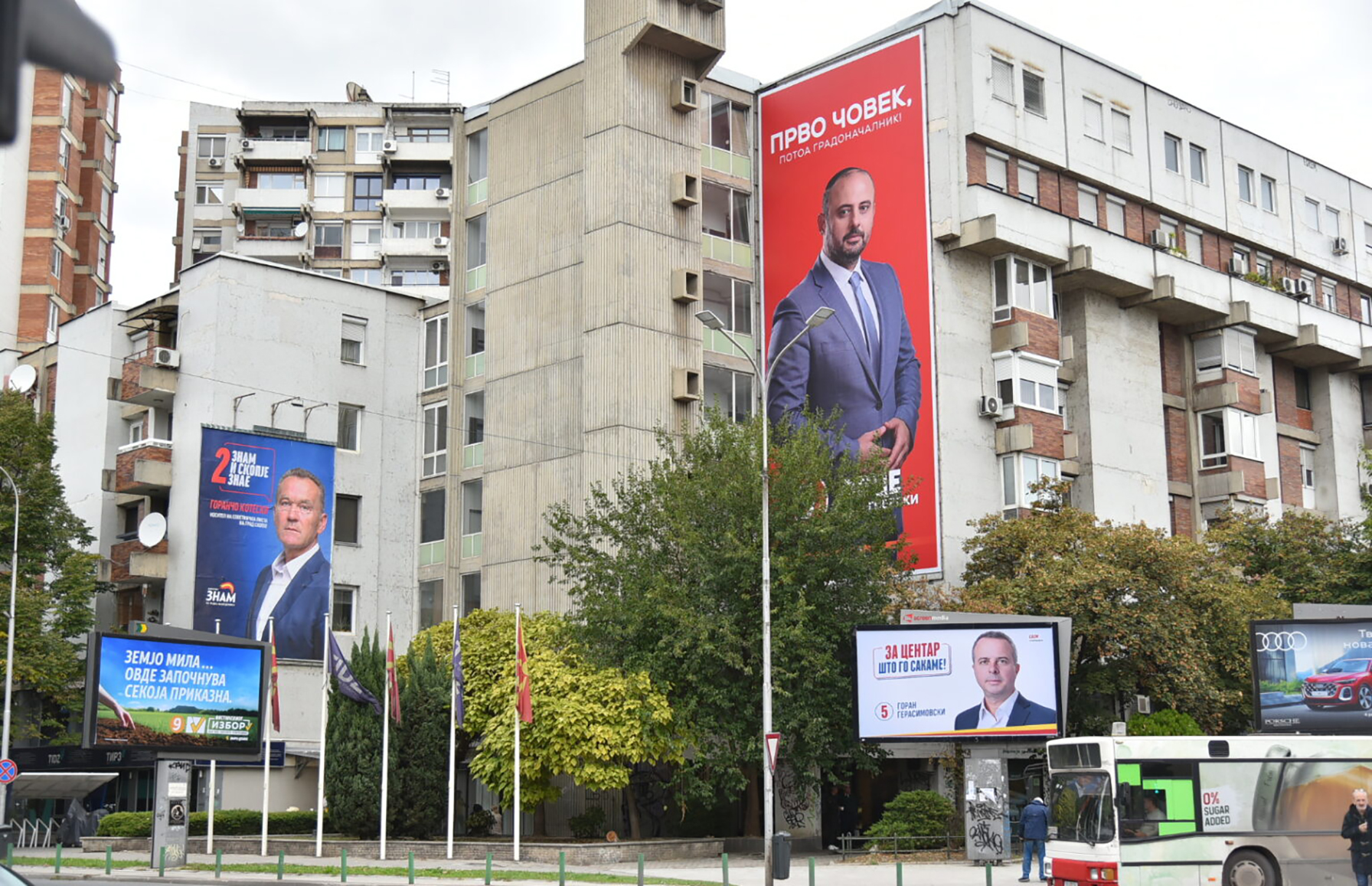In these local elections, as in the previous ones, the rallies of political parties and the statements of political leaders are dominated by national issues rather than local ones. Macedonia is currently in the midst of the campaign for the eighth local elections since independence. What appears almost certain in these elections is the likely victory of the right-wing Christian Democratic ruling party VMRO-DPMNE, and the uncertainty of the outcome within the Albanian political camp.
Until last year’s parliamentary elections, there was no uncertainty about who would represent the Albanian citizens in the Macedonian Parliament. For the 35 years of Macedonia’s independence, it had always been a single party—either PDP, DPA, or DUI (the Democratic Union for Integration, dominant over the last 20 years, a party that emerged from the UCK following the 2001 conflict in Macedonia). Since last year, however, several high-ranking DUI officials decided to break away and form a new party, the Vredi coalition. In last year’s parliamentary elections, they achieved significant success and are now part of the ruling coalition with VMRO-DPMNE.
In these local elections, all public opinion polls indicate that the greatest uncertainty will be the outcome of the contest between DUI and the Vredi coalition, the two political parties representing Albanians in Macedonia. The results of surveys measuring the trust of Albanian citizens in Macedonia show a margin of difference of plus or minus 2 percent, which falls within the range of statistical error. This uncertainty fuels DUI’s appetite for victory in the local elections, but what is even more significant for them is the pressure to push for early parliamentary elections. Their reasoning is that if they win in the local elections, it will prove that they are the true representatives of the interests of Albanians in Macedonia (who make up 25 percent of the population) and, therefore, that they will have the right to provoke early parliamentary elections in 2026 (though the mandate of the current government runs until 2028).
Such a scenario is not provided for by any Macedonian law, yet DUI maintains that it will have that right (if it wins the local elections) and that early parliamentary elections must be held. The ruling parties, however, counter this reasoning by insisting that regardless of the local election results, there is no justification for holding early parliamentary elections in 2026.
This uncertainty within the Albanian political camp only heightens antagonism, intensifies the rhetoric in their mutual clashes, and fuels a cycle of accusations.
Among ethnic Macedonians, the situation is clearer. The gap between the two largest Macedonian political parties, VMRO-DPMNE and SDSM, stands at 4 to 1 in favor of the right-wing party. The Social Democrats are in crisis: parts of both their previous and current leadership are entangled in corruption scandals (still unresolved in court), while their role in forging the Prespa Agreement—which changed the country’s name—and the Treaty on Good Neighborly Relations with Bulgaria, which includes incorporating Bulgarians into the Macedonian Constitution, have reduced SDSM to its lowest ratings to date. These agreements represent a disgrace for the country’s foreign policy.
The local elections are scheduled for October 19, 2025, with a runoff on November 2. The race includes 309 candidates for mayor across 80 municipalities, and 576 candidate lists for municipal councils, totaling 10,490 candidates. In all, 22 parties, 19 coalitions, and 119 citizen groups or independent candidates are participating. The capital, Skopje, has drawn the highest number of mayoral contenders—sixteen.
In contrast to the political leaders and their power struggles during the campaign, citizens are primarily concerned with local issues—such as infrastructure, sanitation, clean air, public services, water supply, public transportation, and education. In recent times, several Macedonian cities have faced mounting problems with air pollution, waste disposal, and the maintenance of cleanliness in urban neighborhoods. These issues have now risen to the top of voters’ expectations from the new local authorities.
The coalition of the ruling VMRO-DPMNE party, called “Your Macedonia,” expects to secure victories in more than 50 out of the 80 municipalities. The opposition, meanwhile, uses its rallies to discredit VMRO-DPMNE’s one year in power at the national level in an effort to gain points locally. It is no coincidence that at rallies, both the government and the opposition resort to nationalistic rhetoric rather than presenting concrete projects to address the countless local issues. Perhaps because neither of the two main parties has any real ideas for solving what citizens are most concerned about—their everyday, practical problems.
Aleksandar Damovski, editor-in-chief of the portal MKD.mk

The articles published in the “Opinions” column reflect the personal opinion of the author and may not coincide with the position of the Center



